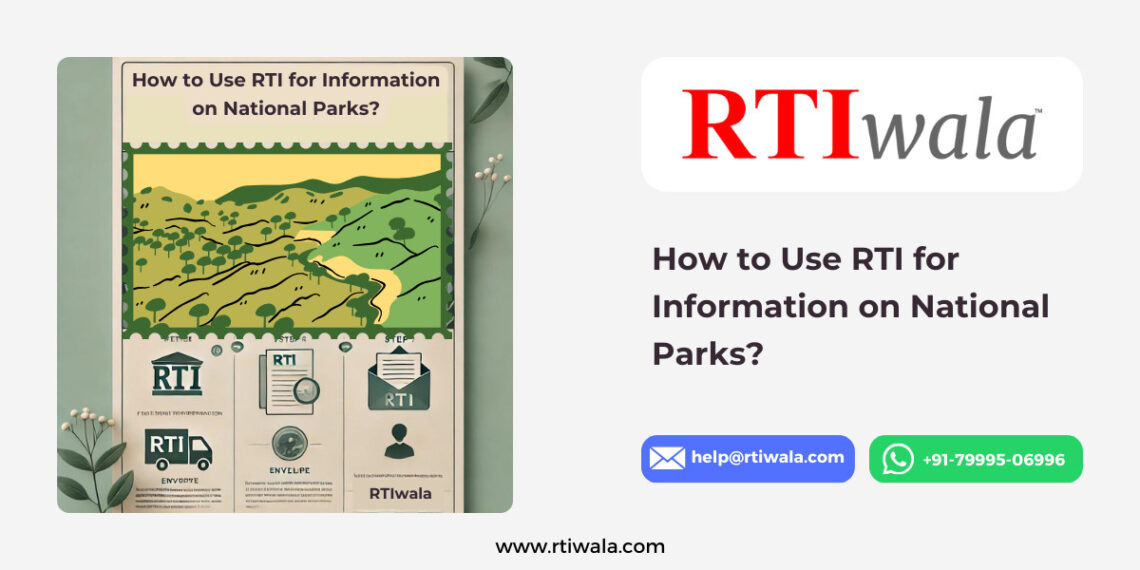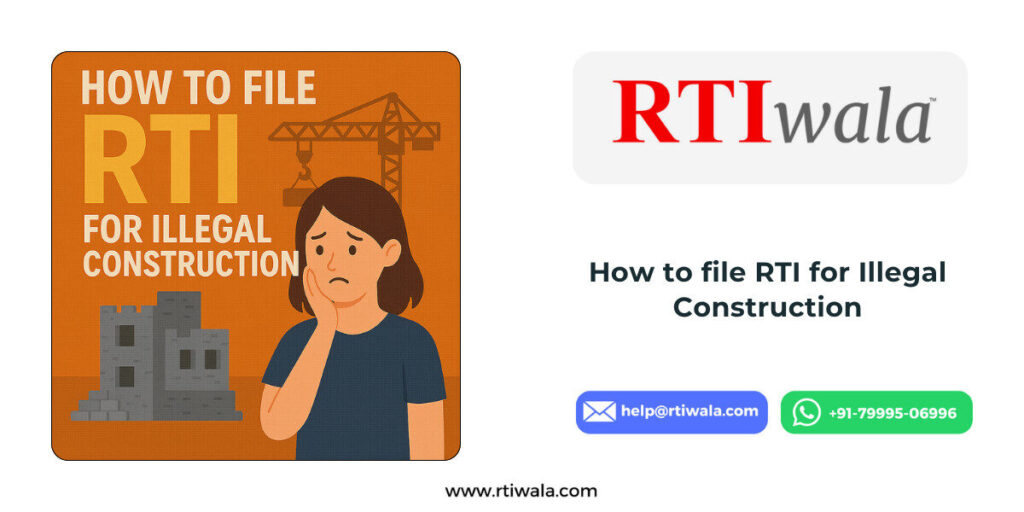National parks are really important for protecting wildlife, preserving nature, and teaching us about the environment. It’s essential to know how these parks are managed to make sure they do their job well. The Right to Information (RTI) Act lets people ask for details about how national parks are run, their policies, and what they’re doing. This guide will show you how to use online RTI to learn more about the management of national parks in India, and RTIwala can help make the process simpler for you.
Table of Contents
- Understanding the Role of National Parks
- Why Use RTI to Access Information on National Parks?
- Types of Information You Can Request
- How to File an RTI for National Park Information
- Challenges in Accessing National Park Information through RTI
- Case Studies: Successful RTI Applications for National Park Management Data
- How RTIwala Can Help You
- Frequently Asked Questions (FAQs)
- Conclusion
Understanding the Role of National Parks
National parks are protected areas established to conserve wildlife, support biodiversity, and maintain the natural environment. They are governed by various laws and regulations, including the Wildlife Protection Act, 1972. Management of these parks involves activities such as habitat restoration, anti-poaching efforts, tourism management, and community engagement.
Why Use RTI to Access Information on National Parks?
Using RTI to obtain information about national parks can help in:
- Ensuring Transparency: Understanding how funds are allocated and used for park management.
- Promoting Accountability: Holding authorities accountable for conservation efforts and environmental policies.
- Empowering Citizens: Enabling public participation in environmental protection and park management.
Types of Information You Can Request
Through RTI, you can request a wide range of information related to the management of national parks, including:
Park Management Plans
- Detailed plans outlining the strategies for park management, including conservation initiatives, habitat restoration, and resource allocation.
Wildlife Conservation Efforts
- Information on specific programs aimed at protecting endangered species, preventing poaching, and maintaining biodiversity.
Tourism and Revenue Details
- Data on tourism activities, revenue generated from tourism, and how these funds are utilized for park maintenance and development.
Environmental Impact Assessments
- Reports on the environmental impact of activities within the park, such as construction, mining, or tourism, and measures taken to mitigate any negative effects.
How to File an RTI for National Park Information
Identifying the Relevant Authority
- Determine the Governing Body: National parks are usually managed by state forest departments or the Ministry of Environment, Forest and Climate Change. Identify the specific authority responsible for the park you are interested in.
- Find the PIO: Locate the Public Information Officer (PIO) for the relevant department to ensure your application is directed correctly.
Drafting a Precise RTI Application
- Be Clear and Specific: Clearly state the information you are seeking, such as “details of anti-poaching efforts in XYZ National Park from 2020 to 2023.”
- Include Necessary Details: Provide your personal information, including your name, address, and contact details.
- Request Copies of Documents: Ask for copies of relevant documents, reports, or data to support your request.
Submitting Your RTI Application
- Choose the Submission Method: Submit your RTI application either online through the RTI portal or offline by post or in person.
- Pay the Application Fee: A nominal fee is required, which varies by state. Ensure that payment is made as per the guidelines.
- Keep Proof of Submission: Retain a copy of your application and any receipts or acknowledgments received.
Tracking and Following Up
- Monitor the Status: Use the tracking number provided to check the status of your RTI application.
- File an Appeal if Necessary: If you do not receive a satisfactory response within 30 days, you can file a first appeal with the designated appellate authority.
Challenges in Accessing National Park Information through RTI
- Delayed Responses: Authorities may take longer than the stipulated time to respond to RTI requests.
- Incomplete Information: Sometimes the information provided may be partial or lack sufficient detail.
- Resistance from Authorities: You may encounter resistance or reluctance from authorities to share certain types of data.
Overcoming Challenges:
- Persistence: Regular follow-ups can help expedite the process.
- Filing Appeals: If unsatisfied with the response, filing an appeal can lead to better results.
Case Studies: Successful RTI Applications for National Park Management Data
- Case Study 1: An environmental NGO successfully used RTI to obtain information on illegal mining activities within a national park, leading to legal action and stricter enforcement of environmental laws.
- Case Study 2: A wildlife enthusiast used RTI to access data on the declining population of a species within a park, which prompted increased conservation efforts by the authorities.
How RTIwala Can Help You
RTIwala offers expert assistance in filing RTI applications for accessing detailed information on national park management. Our services include:
- Crafting Effective Applications: Ensuring your RTI request is clear, specific, and likely to yield the desired information.
- Guidance Through the Process: Providing support from filing the application to receiving the information.
- Appeal Assistance: Helping you file appeals if the initial response is inadequate.
RTIwala makes the process of obtaining crucial environmental information hassle-free.
Frequently Asked Questions (FAQs)
- Can I request information on any national park in India through RTI?
- Yes, RTI can be used to request information on any national park in the country.
- What type of environmental data can I obtain through RTI?
- You can request data on conservation efforts, environmental impact assessments, and park management plans.
- How long does it take to receive a response to an RTI request?
- Public authorities are required to respond within 30 days of receiving the application.
- What if the information provided is not complete?
- You can file a first appeal to obtain a more detailed response.
- Is there a fee for filing an RTI request?
- Yes, there is a nominal fee that varies by state and submission method.
Conclusion
The management of national parks is crucial for preserving our natural heritage and ensuring sustainable development. By using the Right to Information Act, you can gain valuable insights into how these parks are managed, the effectiveness of conservation efforts, and the impact of human activities on these protected areas. If you need assistance with the RTI process, RTIwala is here to help you navigate the system and obtain the information you need for environmental advocacy and awareness.




















































